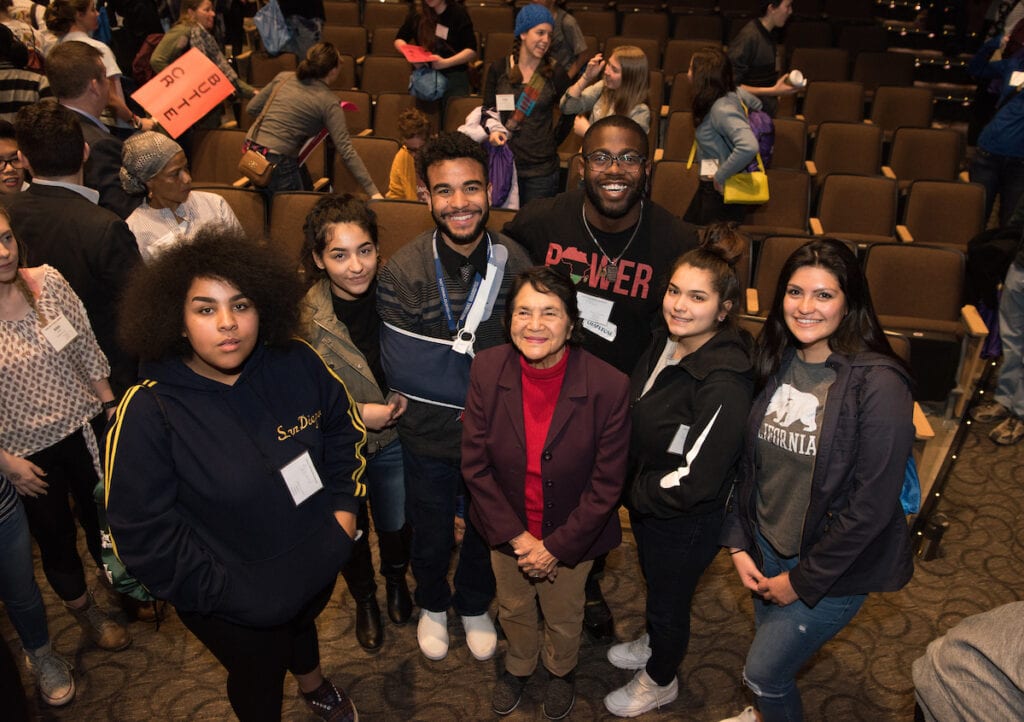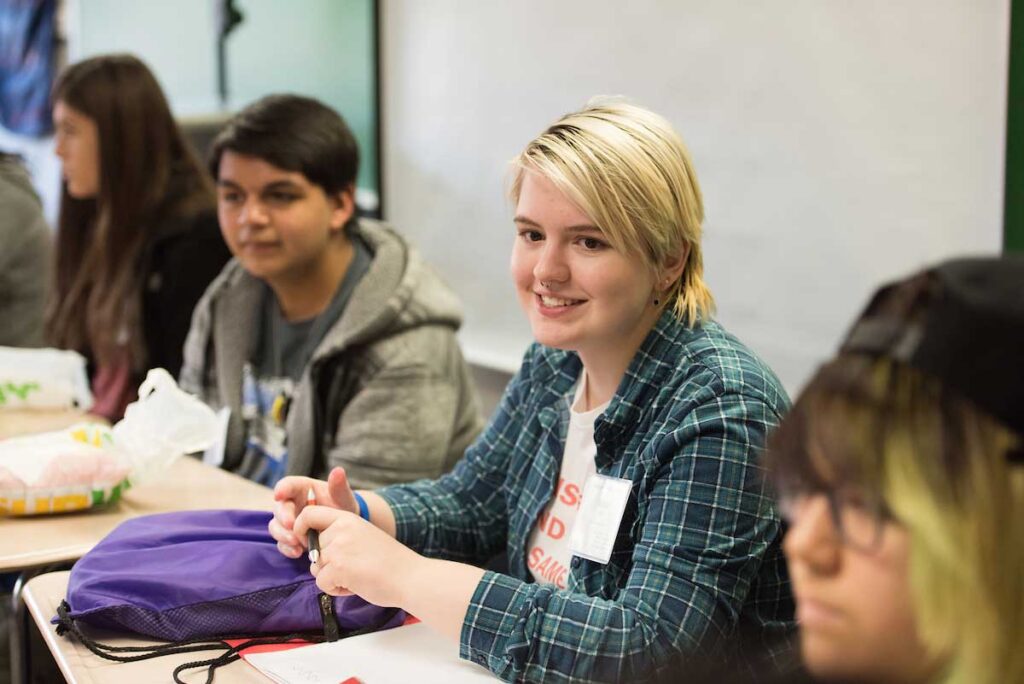We support student athletes and activity participants making their teams and groups inclusive and welcoming for everyone’s benefit.
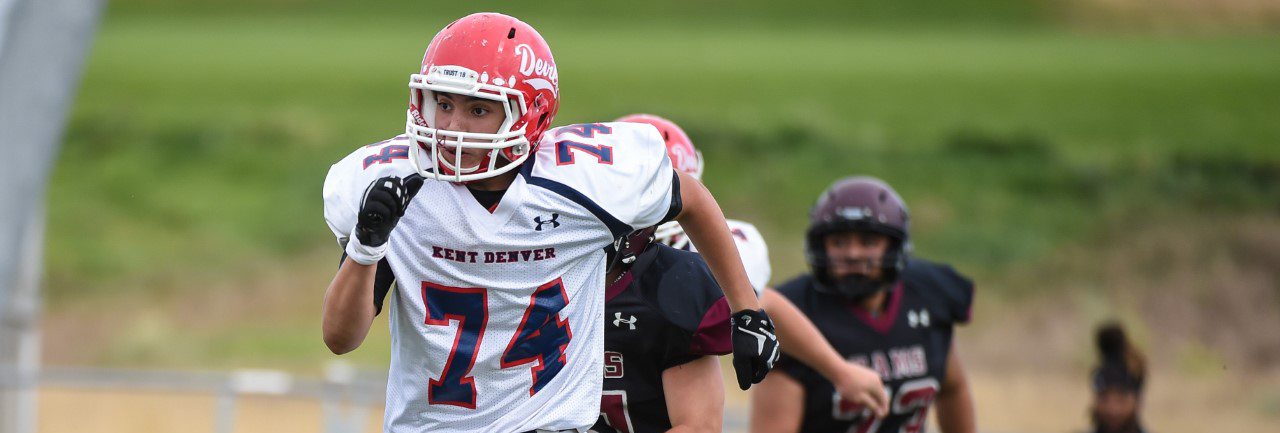
Jump to a section:
Important Inclusive Sports Terms
- Healthy competition: focus is placed on how we are winning, rather than whether or not we are winning. If, for example, we define a win as leaving it all on the field, accomplishing the objectives we practiced in training, and coming away with some really strong lessons learned, then a “win” is suddenly within reach of every player on the field. (Soccer Sidelines)
- Play equity: Play Equity means fairness. Play Equity means opportunity. Play Equity means that how much exercise kids get must not be determined by their income. Play Equity means that the dreams of our youth must not be determined by their zip codes. (LA84 Foundation)
How Exclusion Shows Up in Sports and Activities
- Schools are providing 1.3 million fewer chances for girls to play sports in high school than boys. (National Federation of State High School Associations)
- Less than two-thirds of Black and Hispanic girls play sports, while more than three quarters of white girls do. Three quarters of boys from immigrant families are involved in athletics, while less than half of girls from immigrant families are. (Women’s Sports Foundation)
- Youth sports in the U.S. are diverging according to income — more middle- and lower-income students quitting athletics while participation among wealthier children is rising. The typical family with kids who play sports spends about $700 a year on fees, equipment and more, but some spend up to $35,000. More public schools are also charging “pay-to-play” fees, pricing out some families. (The Aspen Institute)
- 85% of parents think that youth sports should reinforce positive values, but only 35% of those parents actually believe that they do. (TrueSport)
- 56% of LGBTQ+ team members and 66% of team leaders competing in high school sports report feeling a positive sense of belonging at school. (GLSEN)
Athletes Who Inspire Us
Here’s a list of folks who are leading the conversation on inclusive sports and activities today, whether on the local or national level. They inspire and inform our work. Follow them on social media, or seek out opportunities to hear them speak to dig deeper on these issues.
YCD Workshops on Inclusive Sports and Activities
YCD has a curated library of over 60 workshop guides on every aspect of inclusion and justice work for middle and high school youth to explore in their own youth-led club or group — with new workshops being published every month. These guides can also be used by educators as part of their in-school curriculum, where interested.
Below is a free sample workshop created by YCD on the topic of creating inclusive spaces, available for anyone to use and download.
Exploring Gender Equity
Gender equality has been an important issue throughout our nation’s history, but we see little discussion on gender equity. This activity asks participants to compare gender equality and gender equity and consider how each shows up in their personal lives.
Other topics available as downloadable workshop guides or offered at YCD conferences/events include:
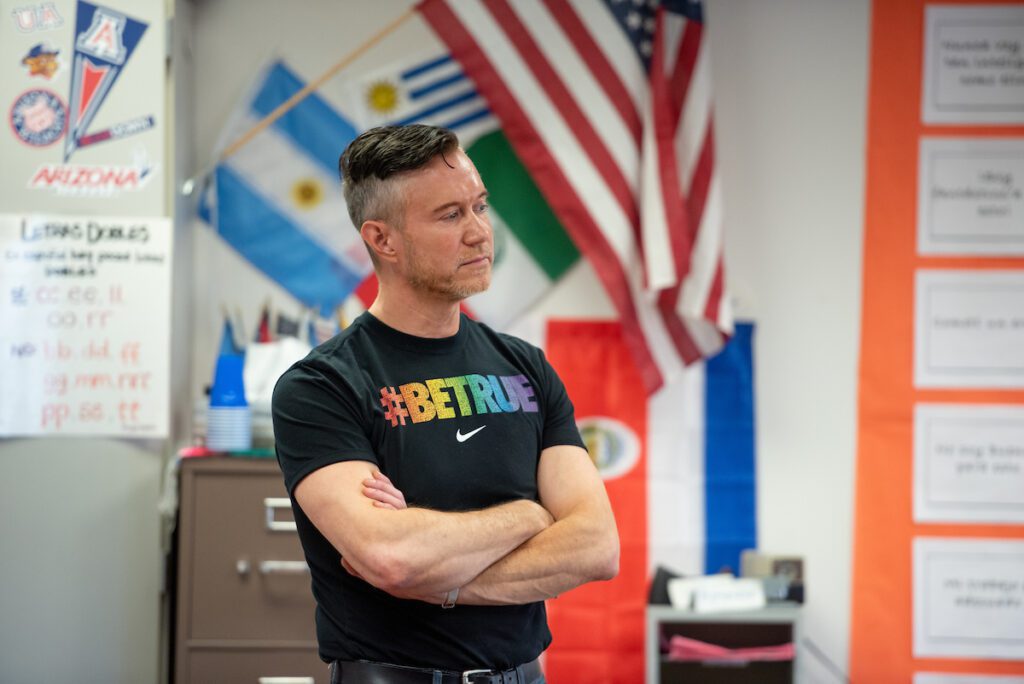
Locker Room Talk
What is “locker room talk”? How can we create a positive culture in the locker room and athletics more broadly for everyone? Topics will include the importance of language, derogatory remarks, casual homophobia, bullying, privacy, and more. Students will be provided a toolkit to become ambassadors for a healthy environment in this susceptible school space.
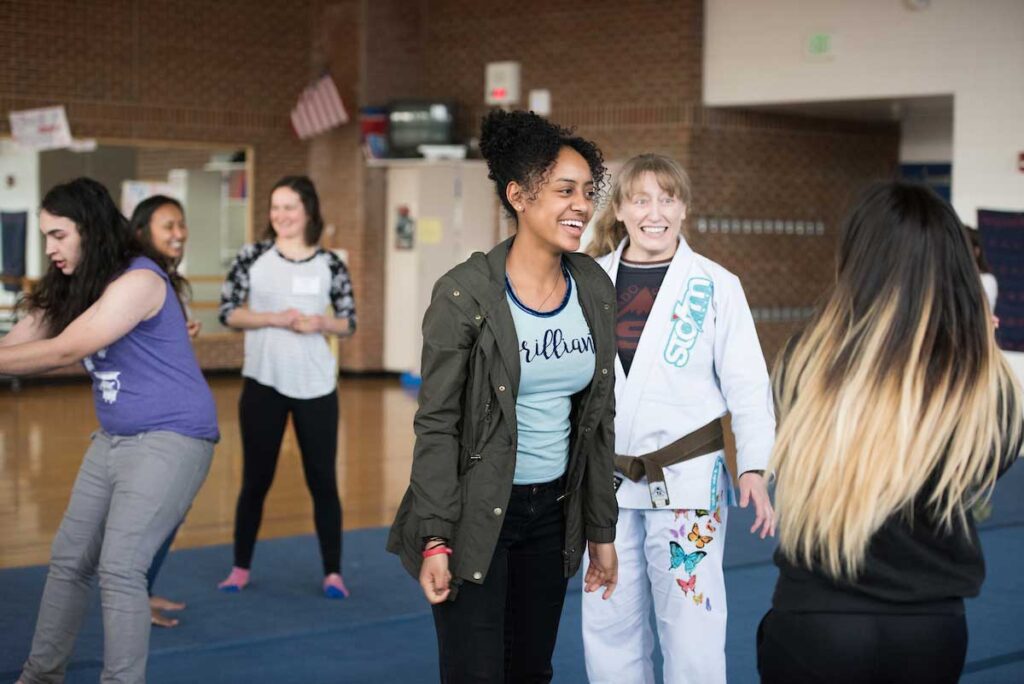
An Introduction to Women’s Brazilian Jiu Jitsu Self-Defense
When women are attacked, they are often taken to the ground by a larger, more aggressive assailant and Brazilian Jiu Jitsu, known for its devastatingly effective ground fighting techniques, directly addresses this situation. Because of this, Brazilian Jiu Jitsu is often recognized as the single most effective self-defense system in the world, especially for women.
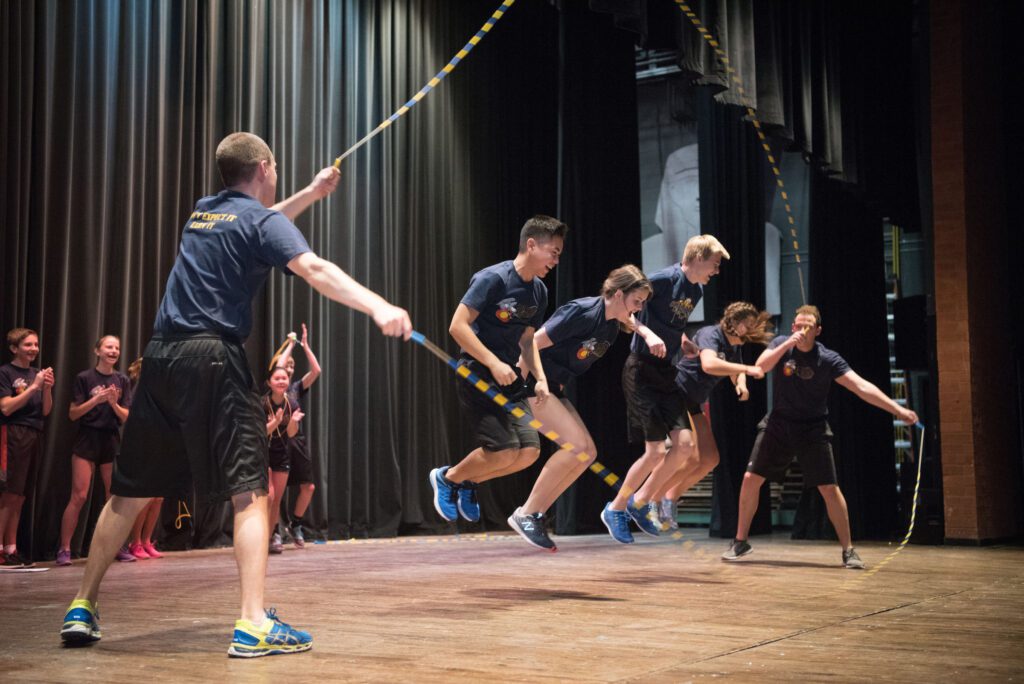
Sports for Everyone
Stereotypes, socioeconomics, and gender equality are all factors that affect our social lives—including sports and athletics. What does acceptance look like in today’s world? We’ll have an engaging discussion on how we all play a role in making athletics and sports inclusive for everyone.
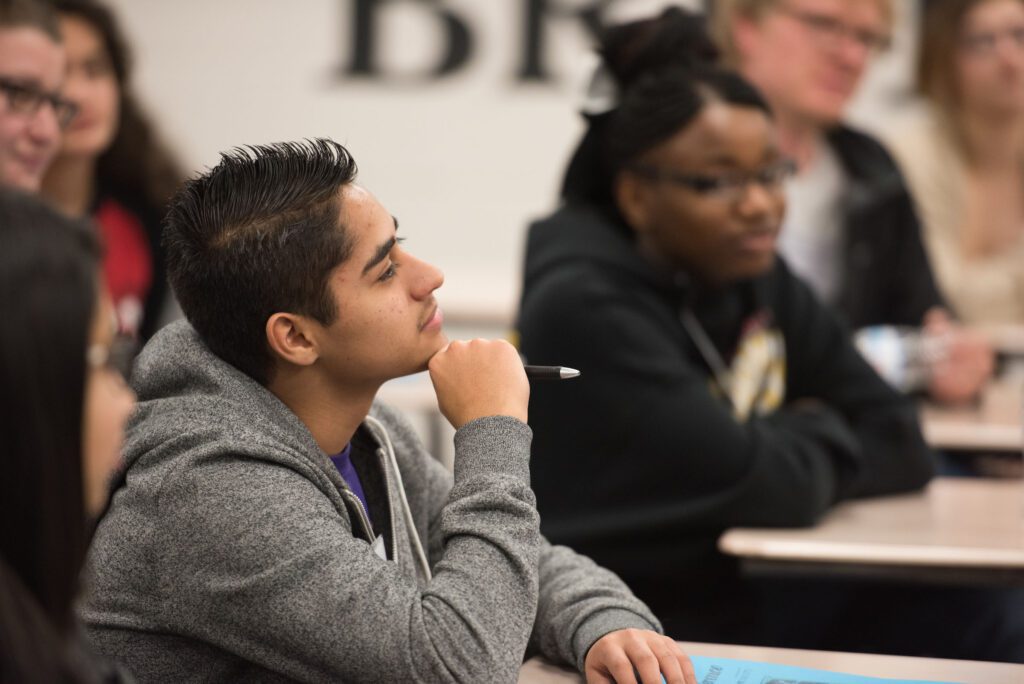
What is the Big Deal About Indian Mascots?
Why is there still so much debate about using Indigenous people as sports mascots and logos? This workshop will examine a range of different American Indian mascots, symbols, and icons. We will discuss why the use of human beings to represent teams, communities, or brands is so controversial.
To experience these workshops, YCD events, and much more, start or join a YCD chapter!
Videos to Explore Inclusive Sports and Activities
Building Inclusive Teen Athletics and Activities
How do we create teen sports and athletics that are inclusive of all identities? What role do sports and athletics have in helping communities rebuild after disasters such as the COVID-19 pandemic?
Stay up to date for future student-generated videos on this topic and more by subscribing to YCD’s YouTube channel.
Books for Students on Inclusive Sports and Activities
Here is a list of recommended books for students and teens on creating inclusive sports and extracurricular activities. You can find free e-books or your local library using OverDrive.com.
Books for Coaches, Educators and Parents on Inclusive Sports
And this list is for coaches, teachers and adults looking for guidance on supporting inclusion within teen sports and activities.
Movies on Inclusive Sports
Below are movies that address inclusion in sports and athletics in meaningful and compelling ways.
Podcasts on Inclusive Sports
Here is a list of recommended podcasts you can download and follow to explore inclusion in sports in more detail.
Ideas for Local Action for Inclusive Sports and Activities
- What kind of language is used by your team during practice, games, or on the field? Is there a culture of support, belonging, and inclusion? Or, are there insults, degrading remarks and language that offends? Think about the culture you want around you. Seek out others who share your values, and talk with your coach and team leaders about how to shift to a healthy culture that supports and nurtures everyone.
- Are students from religious minorities able to easily participate in sports? Muslims’ holy day is Friday; and Saturday is holy for Jewish students. If your practices or games are regularly scheduled the same day each week and conflict with religious calendars, chances are these students cannot participate. Yes, it is likely impossible to find a time that works for everyone, but consider changing the schedule up or alternating days every week. Take a critical look at the scheduling to make these programs accessible to everyone. Survey students (including students who may not be in the program because of scheduling conflicts) to drive your decision-making.
- Are there dress code limitations that conflict with religious beliefs? Hijabs (head coverings) in particular are important to some Muslim girls and women. Does your school allow for hijabs to be worn during athletic competition? Read this story about one girl’s experience wearing a hijab during athletic competition, and how it turned into a campaign to end discrimination in sport. Ensure your school’s and state’s dress code isn’t discriminating against teens based on their religious beliefs.
- Does your school give equitable support to male and female sports teams? Are the games for girls basketball filled with fans just as much as the boys? Is funding shared between the teams equitably? Is there a “pecking order” around reserving the gym or other spaces? If your school isn’t making sports and athletics equitable for all genders, create a project to document the inequity, raise it with administration, and fight for change.
- Does your state athletic association have a trans-inclusive policy that supports trans students participating in the sport of their gender identity? As of July 2020, 18 US states and the District of Columbia have inclusive policies; all others either do not have policies, have policies that need improvement, or have discriminatory policies. Get the latest info about your state’s policies from transathlete.com. If your state needs change, learn more about Colorado’s creation of the first-in-the-nation policy, and conduct an advocacy campaign to make your state’s athletics trans-inclusive.
- How accessible are sports and athletics in your school and community for students from lower income families? Can they afford fees, equipment, travel, or more? Does your school put financial barriers in place to their participation? Look into the specifics in your school, and then conduct a group project to make change. Advocate for school-imposed fees to be cancelled or on a sliding scale; create a scholarship fund; and reach out to sports equipment companies and retailers for in-kind donations.
- Coaches and athletic directors: sign up for Return on Inclusion‘s Inclusive Leader Certificate, which you can get after walking through six modules on different aspects of diversity and inclusion. This is a self-paced, online platform is specific to the world of sports and provides adults an accessible way to learn more about how diversity and inclusion affects your role as a coach or administrator.
Do you have a suggestion of an addition or resource for this page? Share your idea with us.
